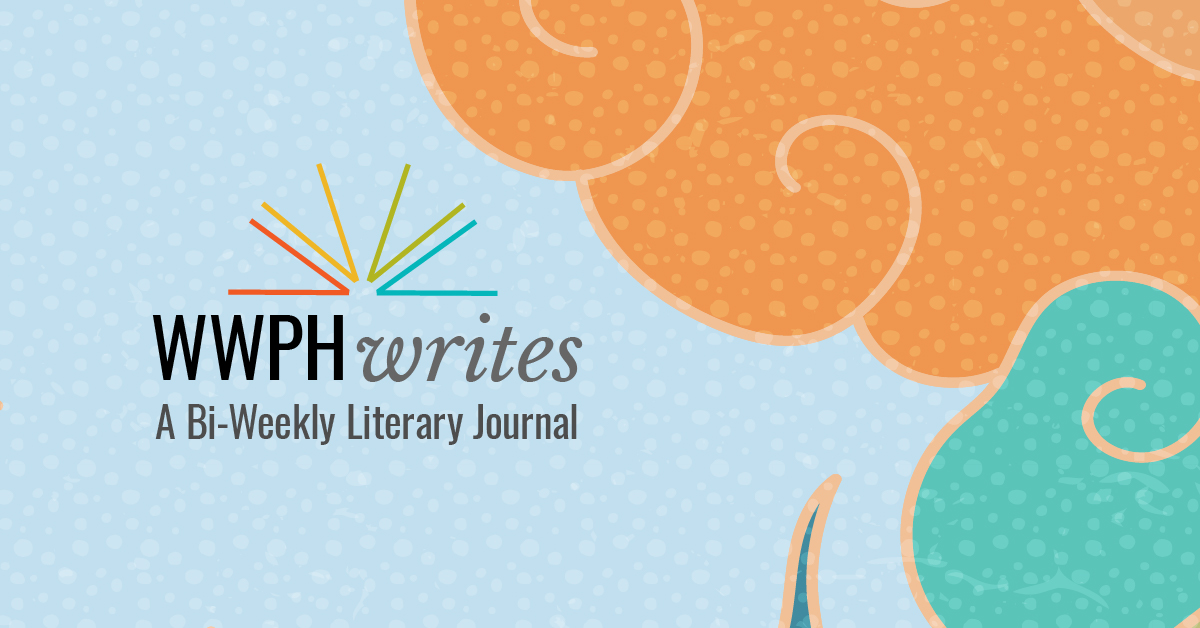WWPH Writes: Issue # 3

Issue #3
Dedicated to Poetry & Fiction Writers in the DMV
Welcome to Issue #3
This issue highlights two writers from the WWPH community—both were previously published in This Is What America Looks Like: Poetry and Fiction from DC, Maryland, and Virginia.
Two poems by Christopher Goodrich capture relationships with the present—one narrator finds himself playing a game with his begrudged daughter, the other poem illuminates a narrator facing an empty closet from a deceased spouse. Both highlight the love and grief of everyday life—things we can move from and things we can look back on.
Tara Campbell’s excerpt from her soon-to-be-released collection, Cabinet of Wrath: A Doll Collection, takes us to a world where we are dolls under the sharp rule of The Maker. It’s eerie, imaginative, dark short fiction in nine short stories.
We hope you enjoy the issue and the beginning of your summer.
Happy Pride from WWPH!
(Submission to WWPH WRITES is free; subscription is free, though you will see a ‘tip jar.’ Any monies raised will go to sustain our shoe-string operation! At this time, we cannot reward our writers with payment, but we hope that our efforts to showcase your works speaks to our commitment to the DMV literary community. Please see our Submittable page for more details.)
Jona Colson
Poetry Editor WWPH WRITES
WWPH Writes: Poetry
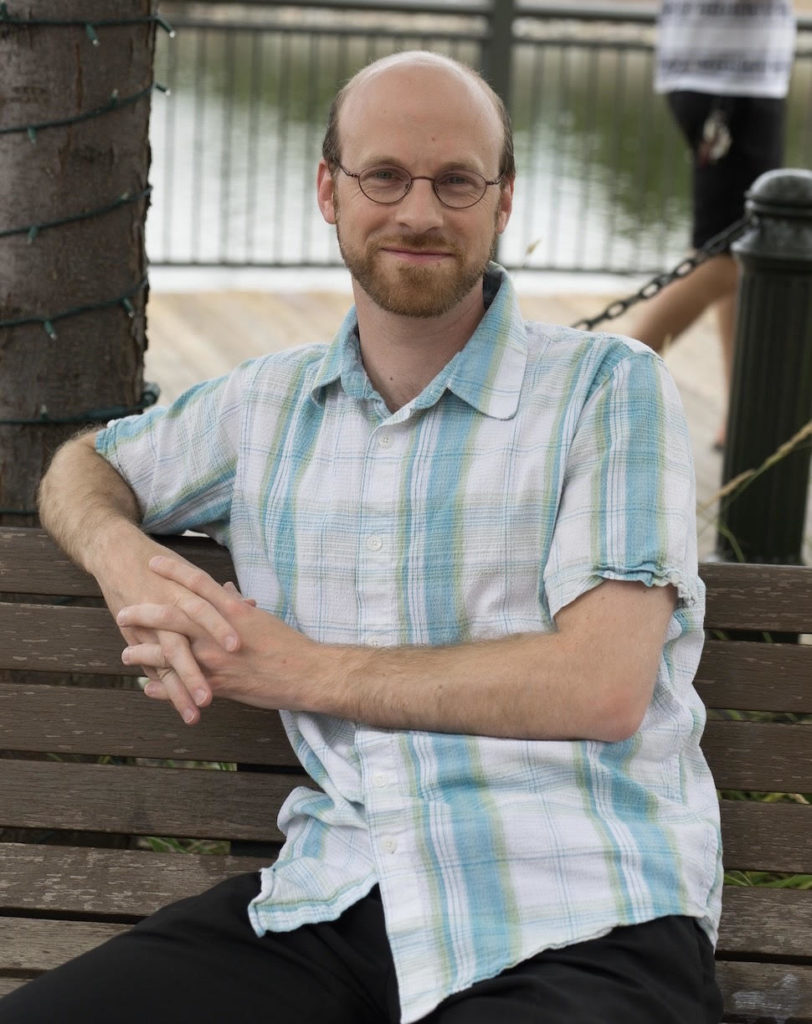
Christopher Goodrich has published 3 books of Poetry. By Reaching (Finishing Line Press), Nevertheless Hello (Steel Toe Books) and No Texting at the Dinner Table (New York Quarterly Press). He is a recipient of an Emerging Writers Fellowship from The Writer’s Center in Bethesda, Maryland, where he has also taught poetry for several years. He has also received two Dorothy Sargent Rosenberg Poetry Prizes and been nominated for a Pushcart Prize. He was recently included in the anthology, This Is What America Looks Like: Poetry and Fiction from DC, Maryland, and Virginia, published by the Washington Writers’ Publishing House
Bored Game
My 11-year-old daughter rolls her eyes
when I ask her to join me
for a game of backgammon.
She has watched YouTube for hours,
and would like to keep at it.
In fact, she would much rather do
anything else. But I insist, so, she humors me,
arrives at the board, already prepared.
I hate this she says aloud
and with each roll of the dice,
literally groans louder. I suggest strategy
but she doesn’t want my help.
She sits across from me, eating
cheesy pretzels and sighing deeply–
a sign I have already lost, I think to myself,
to the truth or dare she’d rather play
with her friends. She’ll spend hours online
watching other people play Minecraft,
which I still don’t understand.
We move through the game, checker
by checker, me gently teaching,
her irritation palpable. She’s 11
and wants nothing to do with me.
I wish there were some epiphany here.
I can feel that at this point in the poem
it would arrive just in time. The slightest
memento of love would rescue me–
She hands me the dice, says thanks
when I offer nice move, or, better yet,
begins to trash talk. Even a simple
Dad, you ain’t shit would be a welcomed
reprieve from the intoned pain she offers now.
But none of that happens. The game ends
and she huffs back to her screen,
loud footsteps and all. I remain at the board
to clean up the pieces.
Stick with her, I say to myself, once she is gone.
Stick with me, I imagine her saying back
as she locks the bedroom door behind her.
Goodwill of all the indignities you must endure after the death of your wife, the most difficult to be sure is facing that closet full of summer sweaters, bright white blouses, red evening dresses, the gardening jeans, earth rich and blue, the black slacks and socks inside a newrunning shoe that kept her here,that kept her moving toward you.
© Christopher Goodrich 2021
WWPH Writes: Fiction

Tara Campbell is a writer, teacher, Kimbilio Fellow, and fiction editor at Barrelhouse. She received her MFA from American University. Previous publication credits include SmokeLong Quarterly, Masters Review, Wigleaf, Jellyfish Review, Booth, Strange Horizons, and CRAFT Literary. She’s the author of a novel, TreeVolution, and three collections: Circe’s Bicycle, Midnight at the Organporium, and Political AF: A Rage Collection. Her fourth collection, Cabinet of Wrath: A Doll Collection, will be published by Aqueduct Press on June 15, 2021. More at www.taracampbell.com
Cabinet of Wrath: A Doll Collection
The Box
MOTHER HOLLY TELLS us right from the start that no one has ever escaped from the Box. She says it’s impossible, that the Makers designed it that way for our own protection.
She says we may hear rumors of escape, but they’re not to be believed. She says only toys with broken minds make such absurd claims, and if we hear them, we should tell her before one of these broken toys snaps and harms us.
But if the Makers are so concerned for our safety, we ask, why did they take us away from our playrooms, away from our children and fellow toys, and bring us here to the Box?
Mother Holly folds her hands over her patchwork dress and shakes her head. “You wouldn’t be safe there anymore. Not in your condition.” Her voice is soft and inscrutable. The brim of her puffy blue bonnet sits low over her eyes, making her difficult to read.
She tells us to just settle in for now, that soon they will share with us everything we need to know. For now, she says, we should thank the Makers for finding us.
“And you should also thank the Fairies,” she says. “You don’t remember it, but they were the ones who safely delivered you here.”
And as soon as she says this, we realize it’s true, even though none of us remember the night — we assume it was night — when the Fairies came in and plucked us up from the foot of the bed or out of the toybox, or wriggled us out of our child’s very arms.
Mother Holly tells us that for now, we must trust that they had a very good reason for bringing us here. “We don’t wait until things get bad,” she says. “We prefer to act before it’s too late.”
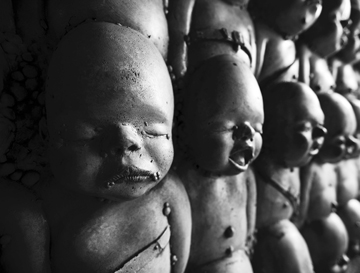
In the Box there is neither day nor night, only an abiding golden glow. It is the comforting hue of the playroom after bathtime, before bed. Most of us relax and settle in with storybooks, but some say we shouldn’t, because that’s exactly what the Makers want.
“Look at these oversized chairs, the nightlights, the warm milk.” They point at the Winnie the Pooh cups next to a platter of cookies. “We don’t even drink milk, so who is this for?”
“It’s cozy,” we reply. “Children like it.”
“That’s the point,” they say, putting fingers and claws to the tips of their noses and snouts. “It’s not really for us — it’s just manipulation.”
Most of us turn back to our storybooks, but the others stay on their feet and paws, vigilant, stalking the Box, refusing to be tamed.
And as soon as she says this, we realize it’s true, even though none of us remember the night — we assume it was night — when the Fairies came in and plucked us up from the foot of the bed or out of the toybox, or wriggled us out of our child’s very arms.
Mother Holly tells us that for now, we must trust that they had a very good reason for bringing us here. “We don’t wait until things get bad,” she says. “We prefer to act before it’s too late.”
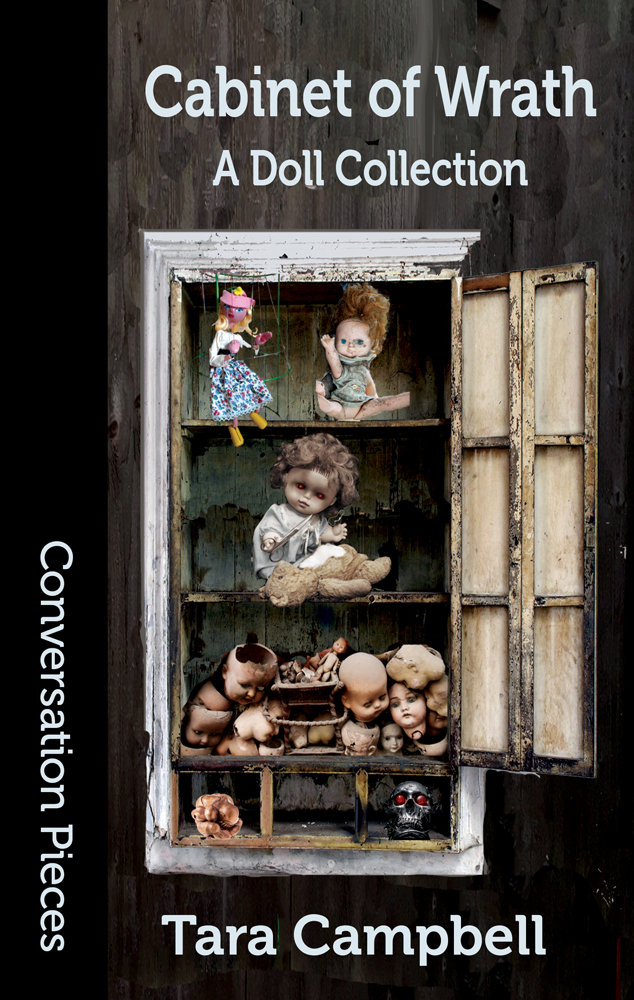
In the Box there is neither day nor night, only an abiding golden glow. It is the comforting hue of the playroom after bathtime, before bed. Most of us relax and settle in with storybooks, but some say we shouldn’t, because that’s exactly what the Makers want.
“Look at these oversized chairs, the nightlights, the warm milk.” They point at the Winnie the Pooh cups next to a platter of cookies. “We don’t even drink milk, so who is this for?”
“It’s cozy,” we reply. “Children like it.”
“That’s the point,” they say, putting fingers and claws to the tips of their noses and snouts. “It’s not really for us — it’s just manipulation.”
Most of us turn back to our storybooks, but the others stay on their feet and paws, vigilant, stalking the Box, refusing to be tamed.
(Editor’s note: The Box continues…find it in The Cabinet of Wrath: A Doll Collection on sale on June 15).
Reprinted with permission of author.
© Tara Campbell 2021
WWPH Community News
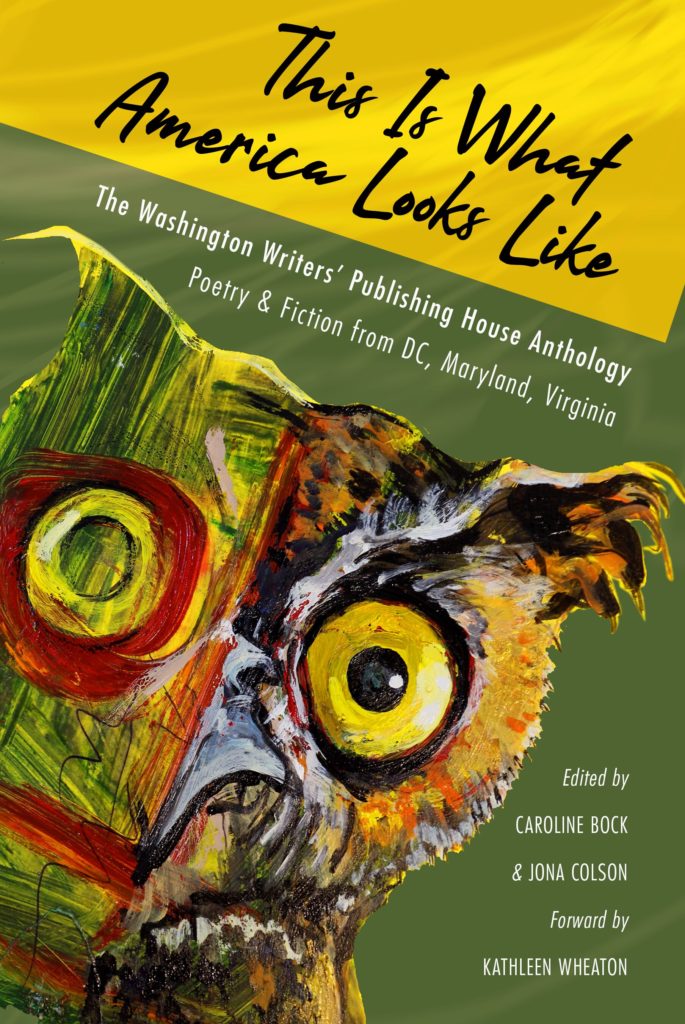
Mark your calendars! On Thursday, June 24th from 6:30-8:30 pm we will be at The Ivy Bookshop in Baltimore for our first in-person reading and celebration of THIS IS WHAT AMERICA LOOKS LIKE: Poetry & Fiction from DC, Maryland and Virginia. It’s free and open to the public! CDC guidelines to be followed. Our incredible line up includes poets Teri Ellen Cross Davis, Sid Gold, Kateema Lee, Steven Leyva and fiction writers Adam Schwartz, Ofelia Montelongo, Jacob Weber and Michelle Brafman. A special reception to follow the reading and all are invited!
If you are unable to be there, we are planning for this to be a ‘hybrid’ affair. Email us at wwphanthology @ gmail.com if you are interested in receiving the link to our live virtual reading at The Ivy.
Thank you for reading our third issue of WWPH Writes
Please help us to spread the word and share this issue with your all your literary-loving friends.

Caroline Bock
Fiction Editor, WWPH Writes

Jona Colson
Poetry Editor, WWPH Writes

